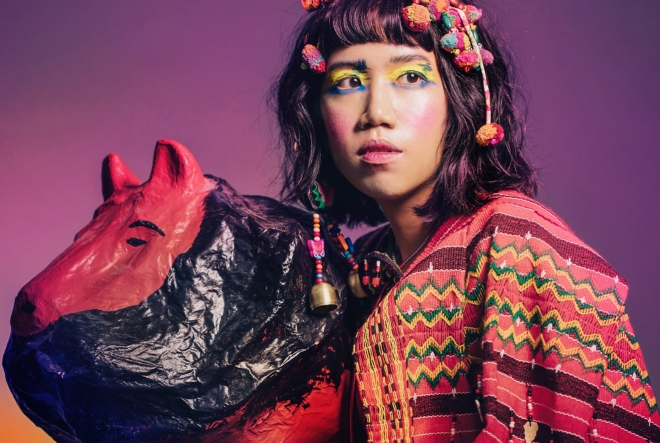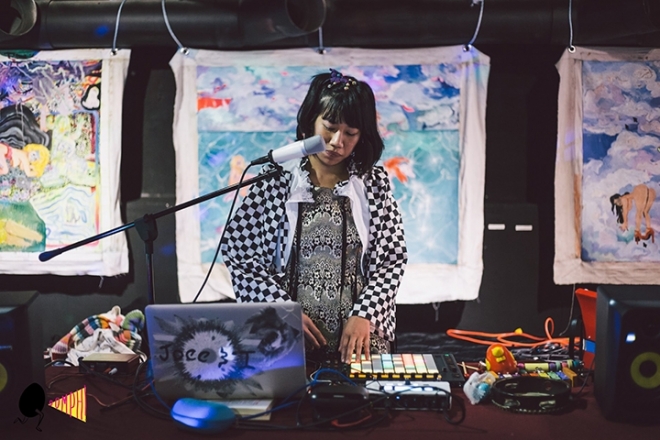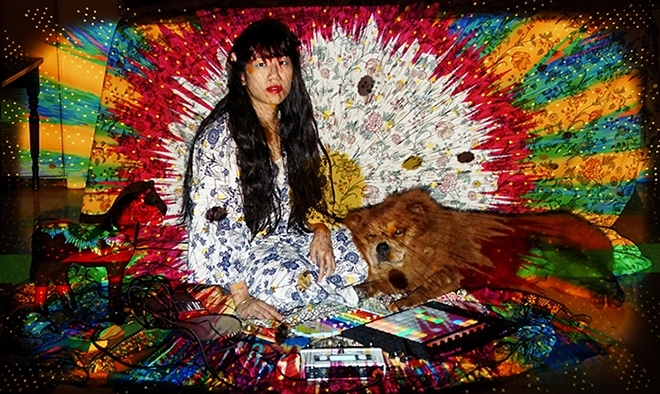Joee & I on rediscovering her roots & welcoming the future of electronic music
The Filipino avant-garde artist takes the time to unlearn and relearn.

To say that Joee Mejias is uncompromising would be an understatement. Fearless in diving into the obscure and going against what popular electronic music “should be”, Joee & I is constantly (and authentically) experimenting under her moniker.

Similar to countless artists, Mejias found herself in a strange spot as the pandemic forced everything to a halt. In between the absence of gigs and being stuck in a foreign country, the avant-garde performer made the best out of a bad situation.
“At the beginning of the pandemic I was locked down in Myanmar the first four months, and it has been a slow transition coming home and pretty much seeing everything that was part of our daily life as an artist and a professional, kind of disappear,” she explains. “I am taking the time to go back to basics and relearn a lot of things, whether it be rudiments of music, relearning a software, and mostly learning a lot about myself and my existence. Though I miss performing and seeing people in real life, I do enjoy this opportunity to go back to my roots and ground myself a lot more.”
Watching Mejias perform never falls short of spectacular. Onstage, she tinkers with often unfamiliar instruments and loops contrasting soundscapes enough to cast everyone under her spell. Offstage, she is either carefully crafting her next audio-visual show, projection-mapping for her fellow artists, teaching during her spare time or learning something new.
“I started the year with Nusasonic for the research trip in Myanmar and the project is still ongoing and has transferred most of their activities online,” she says. “I still get an opportunity to play a few gigs in person and online. and have recently finished a commissioned work with ToneList and Liquid Architecture from Australia since the festival had to cancel at the onset of the pandemic. I have also been introduced to distant sound collaborations, making mixtapes and podcasts which I found out I actually enjoy doing.”
Beyond her crazed schedule and limitless verve to expand her artistry, Mejias has made it a point to champion and work with her fellow women artists through in-depth collaborations. Most recently, she collaborated with producer/musician, Alyana Cabral aka Teenage Granny.
“Teenage Granny participated in writing an episode for Nusasonic radio which is co-produced by Wsk Festival and Heresy a platform for womxn in sound and interdisciplinary art. We called the episode Banana Ketchup as an homage to the inventor of it, Maria Orosa who is a food chemist and war heroine. The idea was to check up on how certain communities have been coping during the pandemic,” she explains. “She’s one of the people I am in close contact with during the pandemic and it was really nice to be productive with her and do something fun like we used to.”
Despite the radical changes to the local music industry caused by the pandemic and the unwavering hunger for live gigs to make a comeback, Mejias is embracing what is current and making the most of it.
“There is this longing to be connected to ourselves and to nature because right now we are at the mercy of it. But humans can always innovate. it’s exciting seeing this attempt to connect the digital realm with real-world connections and what we have created so far. The nearest future is a hybrid of online and real-life experience. There’s also a lot of “decentralization” in music as well, so a lot of new music and ideas are emerging from Asia,” she notes.

While the global scene continues to wait, Mejias’ thoughts are as wistful, pure and revealing as her music.
“We have a lot to express at the moment. We are sad and angry at the same time. So I think, we just want to be motivated to do things and make a change, and music, as always, can help push that. I think overall we are all trying to gather strength.”
[Images via Galugad, Scoutmag & Girlsclub Asia]


